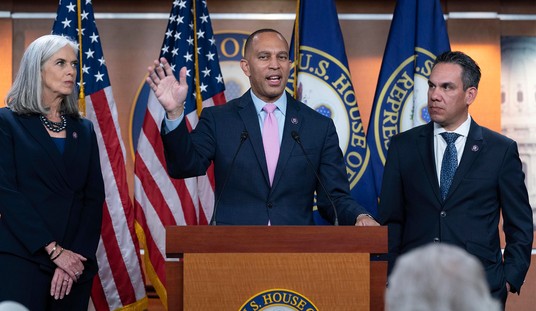
One of the frustrating things about the Trump administration is that they treat the very idea of coherent messaging very much like a vampire treats Holy Water. I posted a little earlier today about the mixed signals Trump sent Congress yesterday upon rescinding DACA.
Were I advising the administration (full disclosure: for far too long I’ve been trapped in the public affairs/public relations/advertising business and I’ve represented federal agencies and private corporations in ‘crisis communications’ efforts) I would have told them their main messages are a) we feel the pain of the DREAMers, and b) we will work tirelessly with Congress to fix DACA but c) DACA is neither legal nor sustainable. You can’t go wrong with the double whammy of “compassion + rule-of-law.”
This is what I would NOT have done. I would not have issued talking points with this bullet:
The Department of Homeland Security urges DACA recipients to use the time remaining on their work authorizations to prepare for and arrange their departure from the United States—including proactively seeking travel documentation—or to apply for other immigration benefits for which they may be eligible.
This might very well end up being true but on a day when the overarching message should have been about working to change the law to recognized something like DACA, it gives the air of duplicity–something of which the Trump administration doesn’t need any more.
This feeds into another issue. If you check Twitter you can see that someone is distributing their own talking points because this tweet, or ones very like it, appear hundreds of times:
One thing that sucks for the #DACA people is that they gave their names and addresses to the government trusting they'd be safe. #DefendDACA
— Joaquin L (@KaiserUDM) September 4, 2017
There is a pretty obvious answer to this question, which, in my view, is that data provided on DACA applications shouldn’t be used for deportation actions. When The Daily Beast posed the question to Homeland Security, that isn’t exactly what they were told:
DACA recipients – often called DREAMers – are facing a new nightmare. According to the Trump administration, Immigration and Customs Enforcement (ICE) officers may use the information these people gave the government as a means of gaining temporary protection to, instead, find and deport them.
…
“Information provided to USCIS in DACA requests will not be proactively provided to ICE and CBP for the purpose of immigration enforcement proceedings, unless the requestor meets the criteria for the issuance of a Notice To Appear or a referral to ICE under the criteria set forth in USCIS’ Notice to Appear guidance,” said the statement.In other words, USCIS (United States Citizenship and Immigration Services, the agency which handles DACA) won’t proactively give immigration enforcement officers a list with the names and addresses of all DACA recipients. But if ICE officers ask for it, the agency will provide it.
“They’re saying we will not give your information unless ICE tells USCIS they need it to deport you, which basically means we’ll give your information out whenever ICE says it’s necessary to deport you,” said Leon Fresco, an immigration attorney who represents many DACA recipients. “That’s the point.”
A brief word on why I disagree with something less than an ironclad guarantee on the use of DREAMer data for deportation. Our system of government only works if there is a substantial voluntary cooperation between the citizenry and the government they allegedly control. Census Bureau data was used to locate Japanese citizens and Americans of Japanese ancestry in order to facilitate their roundup and internment in 1942. The damage that did to the Census was so measurable that now federal law forbids providing Census survey data to any federal agency. Black Americans are underrepresented in clinical trials and among organ donors for one reason: the Tuskegee Study. There are probably a dozen other examples of why trust is an indispensable part of governance. I realize, of course, that YMMV.
Yesterday, President Trump made a tough decision to wind down a program that has a great visceral appeal. Doing it right will be hard. Doing it right when you are sending conflicting messages will be impossible.













Join the conversation as a VIP Member